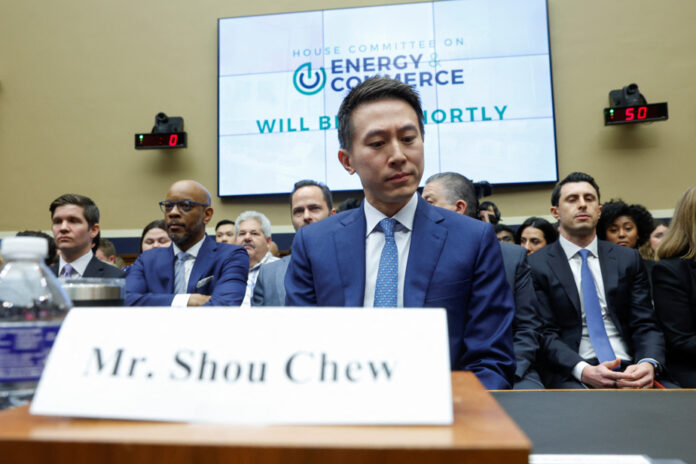(Washington) Shou Chew, the boss of TikTok, a subsidiary of the Chinese group ByteDance, tried with difficulty on Thursday to defend its application, in the face of intractable American elected officials, who had for the most part condemned in advance the platform threatened with a total ban on UNITED STATES.
“I imagine you’re going to say everything you can today to avoid that outcome,” said Cathy McMorris Rodgers, the chair of the powerful House Energy and Commerce Committee, which convened the conducting for an audition.
“We don’t believe you,” she snapped. “ByteDance is indebted to the Chinese Communist Party and ByteDance and TikTok are the same.”
The Singaporean leader, a Harvard graduate, underwent a particularly pugnacious interrogation by the representatives who presented, exceptionally, a united front.
“Mr. Chew, welcome to the most cross-partisan committee in Congress. We don’t always agree on how, but we all want to protect our national security, our economy, and most importantly our children,” said Republican Buddy Carter.
For more than five hours, the elected officials hardly let the former banker speak. According to them, the Chinese Communist Party uses TikTok for purposes of espionage and manipulation.
The White House, the European Commission, the Canadian and British governments and other organizations have recently banned their officials from using it.
Shou Chew promised that by the end of the year, all information related to the 150 million American users would be managed only from servers of the Texas-based Oracle group, located in the United States.
But he had to acknowledge that the platform still has old data accessed by Chinese employees.
“The Chinese government does not own or control ByteDance. It’s a private business,” he insisted, however.
Representative Anna Eshoo called his arguments “grotesque”. “I don’t believe there really is a private sector in China,” she said, referring to Chinese law that requires companies in the country to share their data if Beijing asks them to.
“I still believe that the communist government in Beijing will always have control, and the ability to influence what you do,” said elected Democrat Frank Pallone.
Several bills, supported on the right and left, are in the pipeline to ban TikTok. The White House hinted that if TikTok remained under ByteDance, it would be banned.
Ahead of the hearing, China’s commerce minister said he would “strongly” oppose a forced sale, stressing that any TikTok divestiture would require Beijing’s approval.
The boss also faced many questions about TikTok’s responsibilities for the mental and physical health of young people, from the risks of addiction to the dangerous challenges that users launch themselves.
“Your company destroyed their lives,” Gus Bilirakis said, pointing to the parents of a dead teenager who had come to attend the hearing. They have filed a complaint against the platform, which they accuse of showing thousands of unsolicited suicide videos to their son.
“Your technology is literally causing deaths,” the representative quipped.
“The fate of TikTok in the United States is more uncertain than ever after this grueling interrogation of Shou Chew,” reacted analyst Jasmine Enberg of Insider Intelligence.
“There’s not much he could have said to convince lawmakers that TikTok is not controlled or influenced, directly or indirectly, by the Chinese Communist Party.”
The application and several associations believe that a complete ban – as in India since 2020 – would fall under censorship.
“Banning TikTok would profoundly undermine the credibility of the United States as a defender of online freedom,” 16 NGOs said in a letter to Congress on Wednesday.
“Why so much hysteria around TikTok? “Asked Wednesday evening the Democratic representative Jamaal Bowman, during a press conference with content creators who came to defend their favorite network.
The platform poses the same risks to data privacy, user health or misinformation as “Facebook, Instagram, YouTube and Twitter”, argued the elected official, calling for “honest conversation on all social networks”.
Many influencers fear losing all or part of their income, and the fanbase they have assembled.
Duncan Joseph, a 20-year-old comedian, told AFP that he could never have built his “community” on other platforms, which he considers less “authentic”.
“On TikTok, anyone can become a superstar,” the content creator said.















